Iodine-Rich Foods for Weight Loss
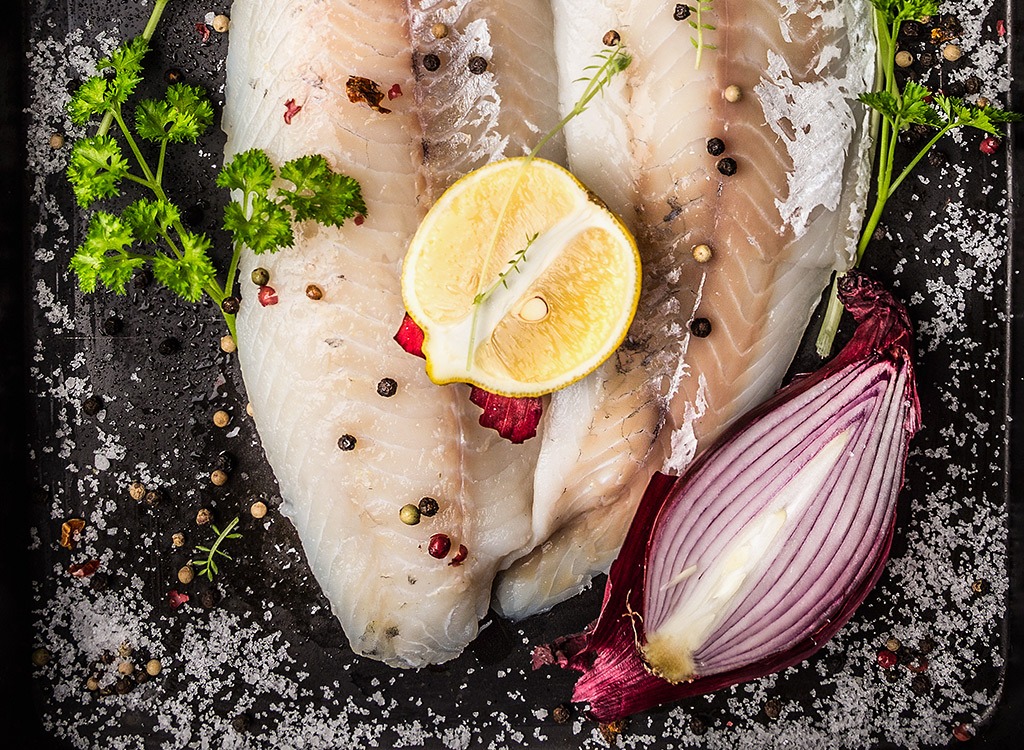
Found in some foods naturally, the mineral iodine is often added to products like salt and is tremendously important for healthy thyroid function – the gland that regulates metabolism. An underactive thyroid has been linked to a wide range of health problems and can contribute to weight gain as well as low energy, depression, infertility and heart disease. While extreme iodine deficiency is no longer a major problem (thanks to a worldwide salt iodization program put in place in the 90’s), mild deficiency is relatively common. The Food and Nutrition Board at the Institute of Medicine of the National Academies recommends that healthy adults 19 years and older should be getting 150 mcg of iodine daily. It may sound like another thing added to your list of to-do’s, but trust us, you’ll be able to hit that quota without breaking a sweat.
With the help of Isabel Smith, MS, RD, CDN, registered dietitian and founder of Isabel Smith Nutrition, we’ve pulled together a list of iodine-rich foods to help you whip your metabolism into shape and start losing more weight now.
Seaweed
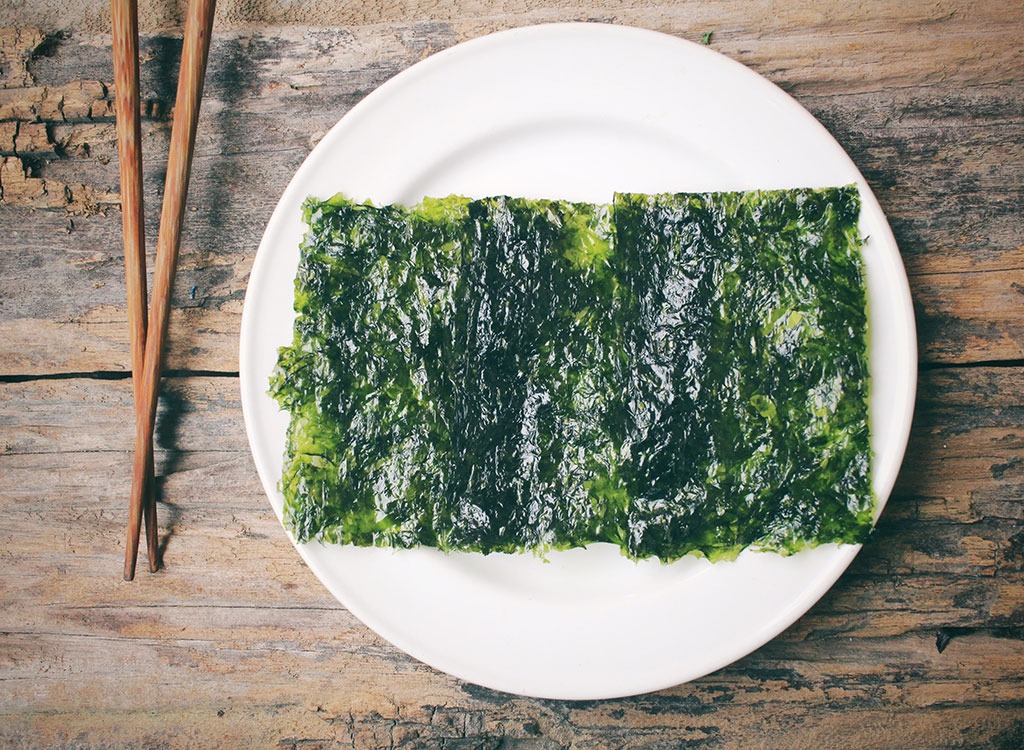
One of the richest sources of iodine, seaweed contains hundreds of times more than other food sources, so a little goes a long way. The actual iodine content is dependent on water in which the seaweed grows, but one sheet (or one gram) of seaweed can contain up to 3,000 mcg. While seaweed may not strike you as food that could ever be a staple in your diet, there are easy and delicious ways to work it into your meal plan. Companies are constantly putting more shelf-stable seaweed-based healthy snacks on the market, so getting in your iodine can be as easy as reaching into your office snack drawer.
Eat This! Dried seaweed snacks are perfect for munching on the run, and their high-flavor, low-calorie profile fits into any weight loss plan. One container of delicately crunchy SeaSnax Grab & Go Seaweed sheets (containing five grams of seaweed) is only 15 calories and comes in fun flavors like chipotle, wasabi, teriyaki and onion. But if you don’t want the sea veg dominating your meal, a sushi dinner will do the trick. Just make sure to avoid calorie-laden sauces and rely on these healthy sushi rolls to fill you up.
Yogurt
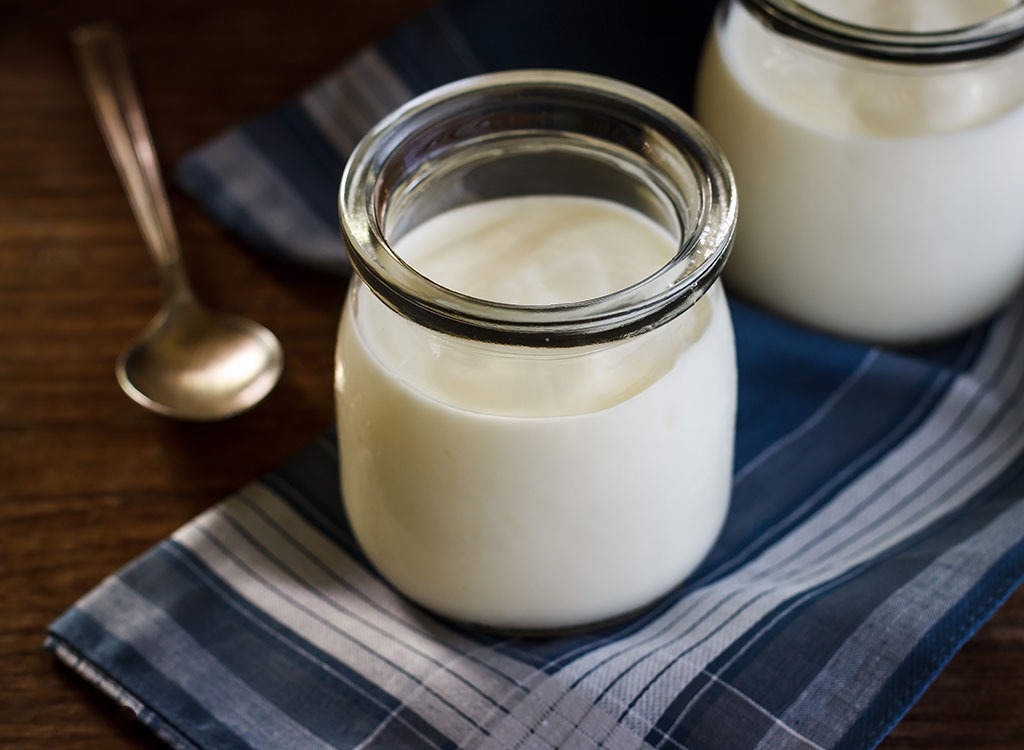
Yogurt is one food that just keeps on giving – if you choose the right cup. One cup of plain low-fat Greek yogurt contains half your daily iodine and, even better, can help you lose weight in more ways than one. In addition to its iodine content, the average pot of Greek yogurt contains around 17-18 grams of protein for a measly 120 calories. It also boasts gut-healthy probiotics, which can help ease digestive problems and deflate belly bloat. In fact, regularly consuming probiotics with a healthy diet can lead to greater weight loss than following a healthy diet without adding more of the gut-friendly bacteria, a study published in the British Journal of Nutrition found.
Eat This! No matter your go-to brand, you should look for a pot with more protein than sugar. This ratio ensures you’re getting a muscle-building boost rather than a blood sugar spike and drop that promotes the storage of belly fat and tanks your energy levels. If you’re open to changing your staple brand, try our best Greek yogurt choices for weight loss.
Eggs
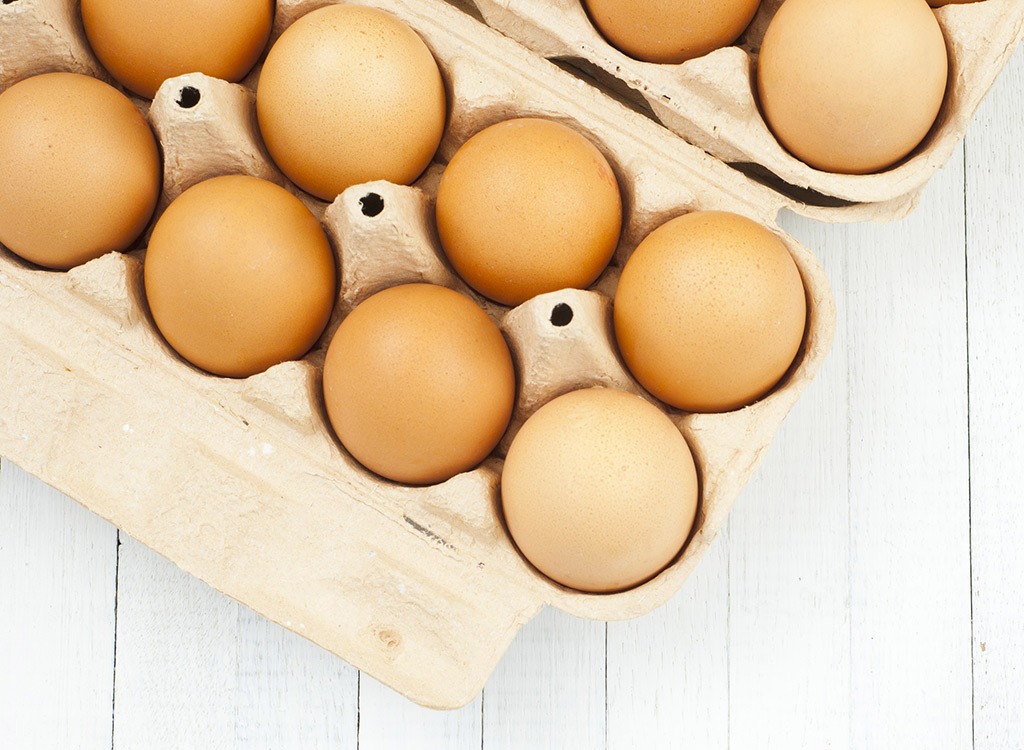
There’s a very good reason some people have dubbed these the perfect weight loss food: Whole eggs contain almost every essential vitamin and mineral our bodies need to function properly, including iodine. And recent science has cleared the incredible, edible egg of its previously less-than-stellar reputation; research has found that the dietary cholesterol they carry has little effect on blood cholesterol levels, unlike trans fats and saturated fats. Even better, they make a great addition to any weight-loss plan by promoting feelings of satiety and making your body work harder (read: burn more calories) to break down their protein. But they won’t just keep your body trim, they’ll also keep it strong: Eggs are one of the few natural food sources of vitamin D, which helps keep bones healthy by encouraging calcium absorption.
Eat This! Eat the whole thing. The sunny center is where a lot of the vitamins and minerals lie. One large egg contains 24 mcg of iodine; so crack a few into your morning omelet and you’ll be close to reaching your daily quota.
Iodized Salt
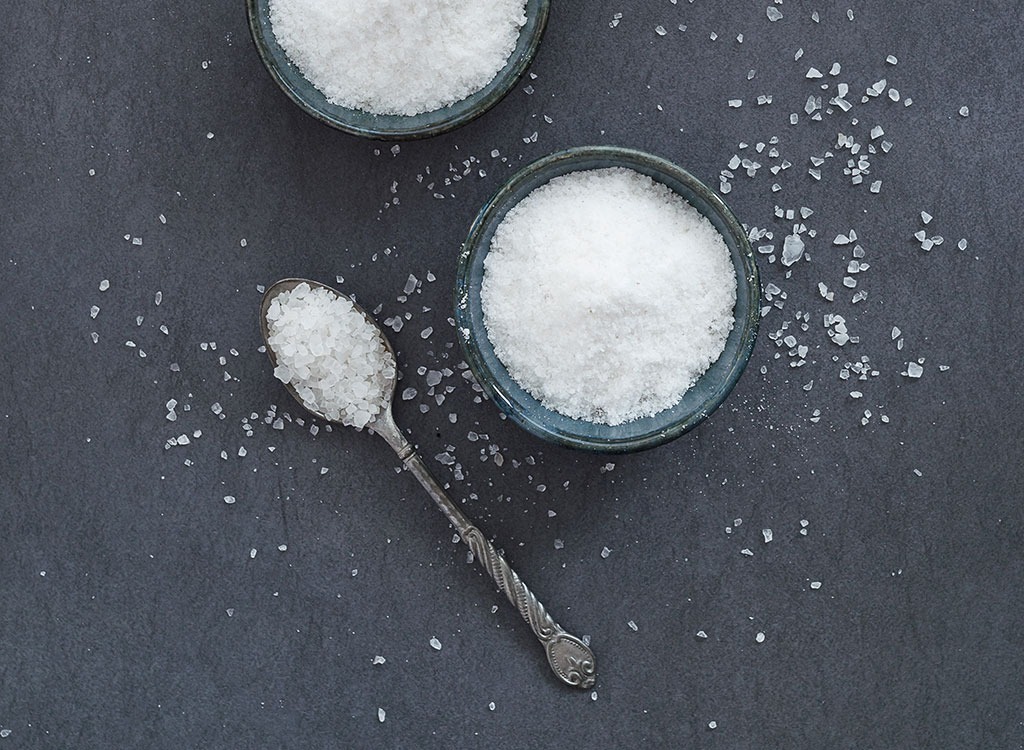
Part of the reason iodine deficiency is so common is that salt added to cheap, processed foods is typically not iodized to save money. And these foods seasoned with non-iodized salt make up the majority of the modern American diet. The demonization of salt has also led most people to avoid the salt shaker at all costs, slashing our chances of getting enough of this nutrient. While too much sodium (the FDA recommends no more than 2,300 milligrams of sodium per day for healthy adults) can lead to high blood pressure and fluid retention, all you need is about half a teaspoon of iodized salt to reach the suggested daily intake of the mineral.
Eat This! Add the salt yourself. By avoiding processed foods containing high amounts of poor quality, iodine-free salt and adding very small amounts of your own iodine-rich salt to meals, you’ll be able to stay within the safe sodium limit while allowing your body to benefit from this essential mineral. Just one-quarter of a teaspoon of iodized salt contains 71 mcg, or micrograms, of iodine.
Seafood
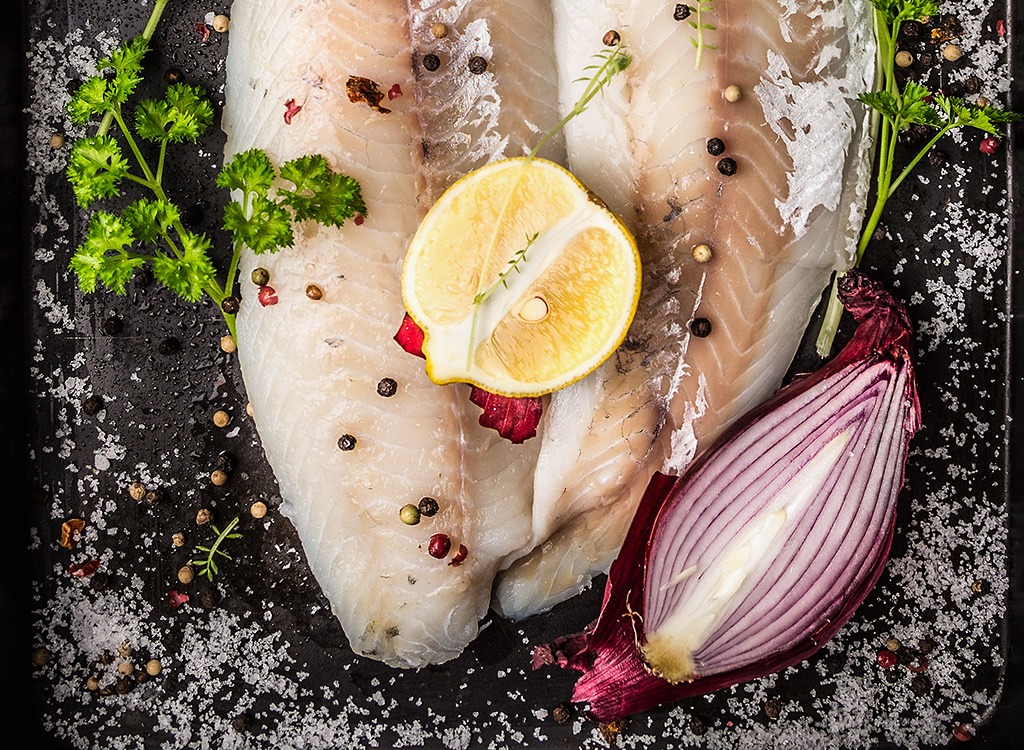
Fish – particularly cod – are excellent food sources of iodine. In fact, just one 3-ounce serving of cod will cover two-thirds of your daily needs. Turning to this fish is good for your better body goals, too. One serving clocks in under 100 calories with 15 grams of protein in tow, and is also a rich source of healthy monounsaturated fats.
Eat This! The healthiest way to cook cod is to bake it. For flavor, simply sprinkle on a few herbs and spices and top the whole thing with a couple lemon slices before you throw it in the oven. Pair it with steamed veggies for a high-fiber, high-protein meal that’s rich in vitamins and minerals and will fill you up at a small calorie price.